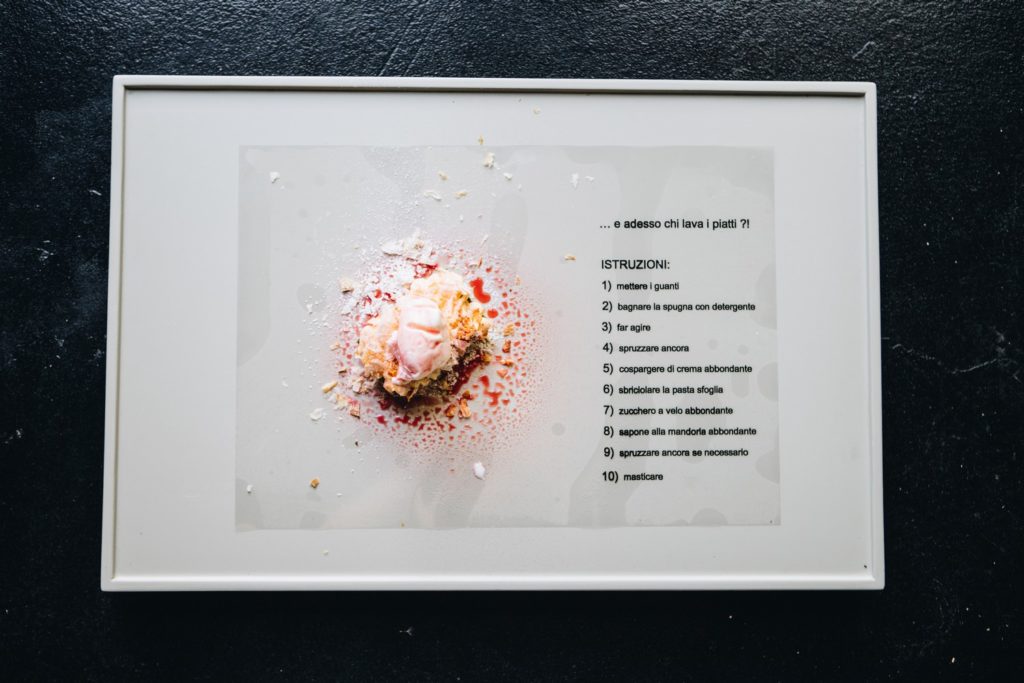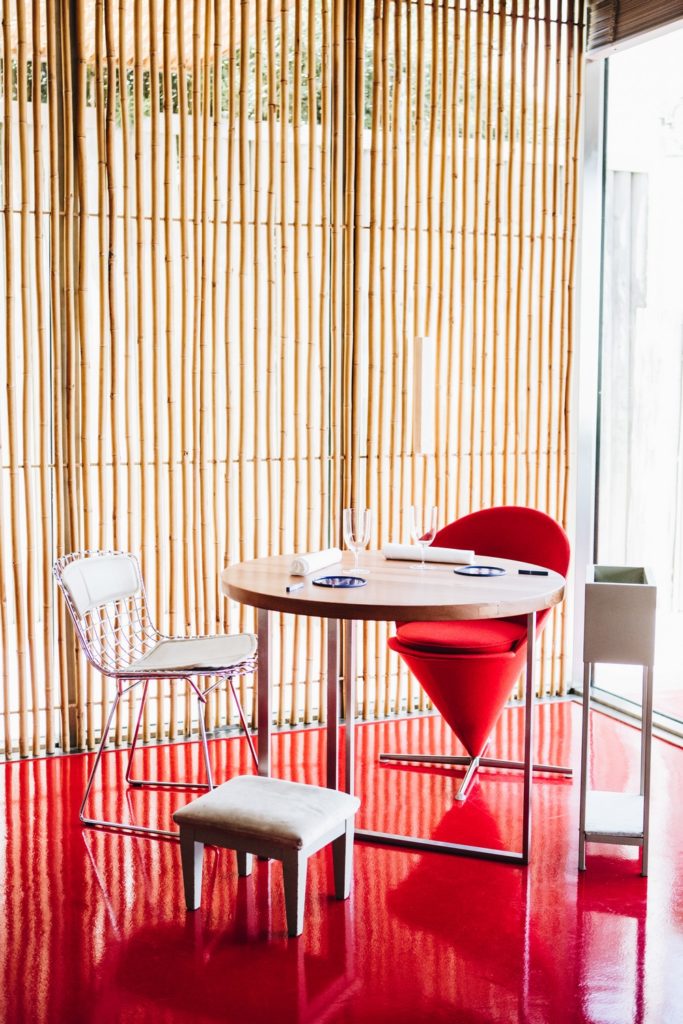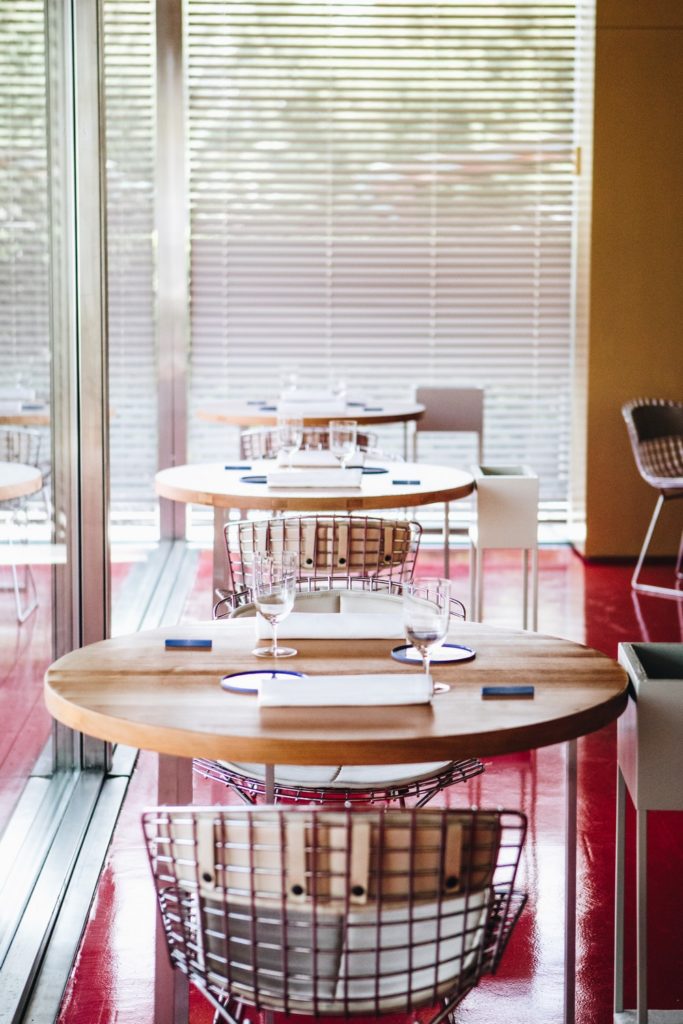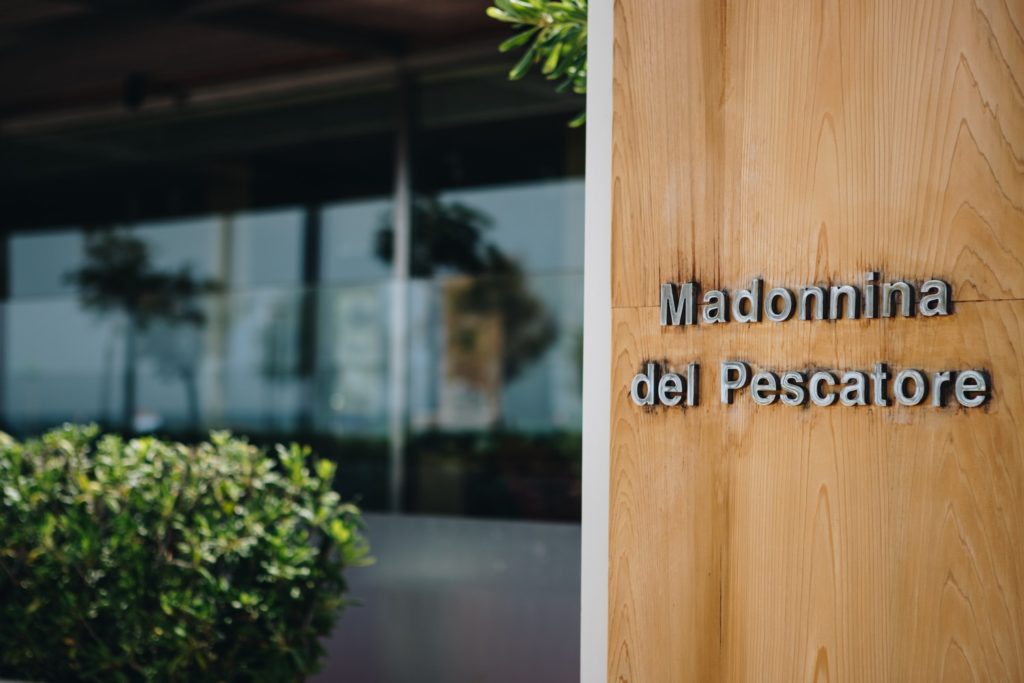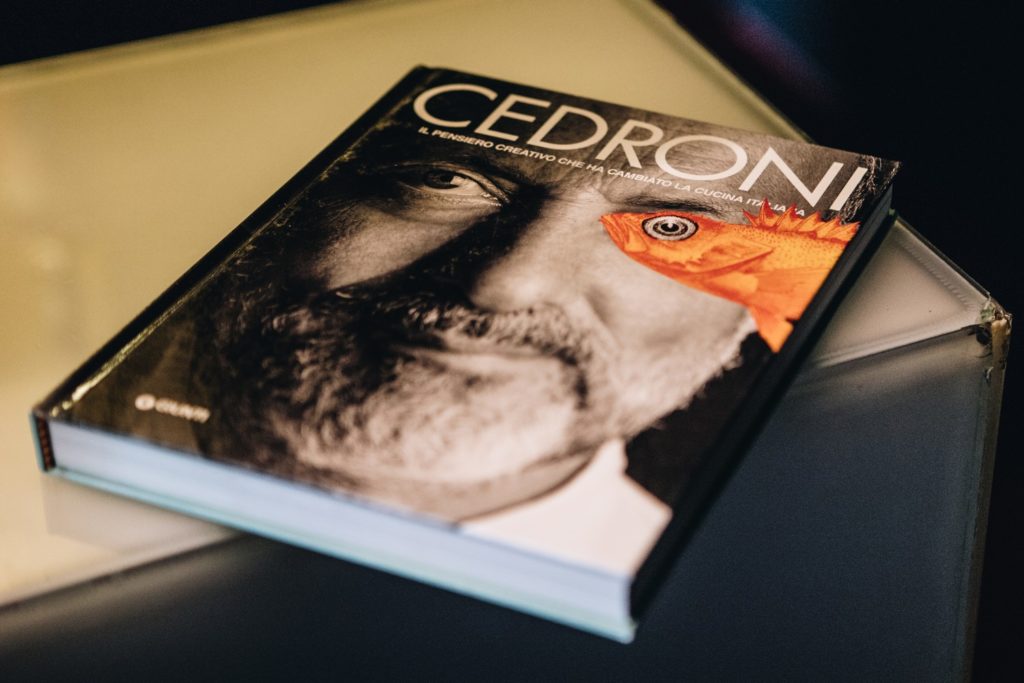Moreno Cedroni is a 2 Michelin star chef, chef and padron of “La Madonnina del Pescatore” opened in 1983. Later, he has carried out other projects such as: Clandestion, Anikò and the Tunnel that is a research and development lab. Moreno has brought an avant-garde spirit to Italian cuisine, representing the past, the present and the future of it.
Luca Abbadir – talented chef who arrives to the ”La Madonnina del Pescatore” in 2007, having earned the full trust of Chef Moreno Cedroni over the years, today he represents a pillar for his projects.
The Best Chef: Let’s start with your story, your origins.
Moreno Cedroni: I was born and raised right next door to the restaurant in 1964. In 1984 I opened the Madonnina del Pescatore. Of course, with a certain measure of shyness, with dishes that were associated with the waterfront. With very simple dishes: from mussel soup to pasta with seafood, without and with tomato sauce, to fried and grilled dishes. These were my beginnings. I also served pizza, prepared on a tray, in an electric oven.
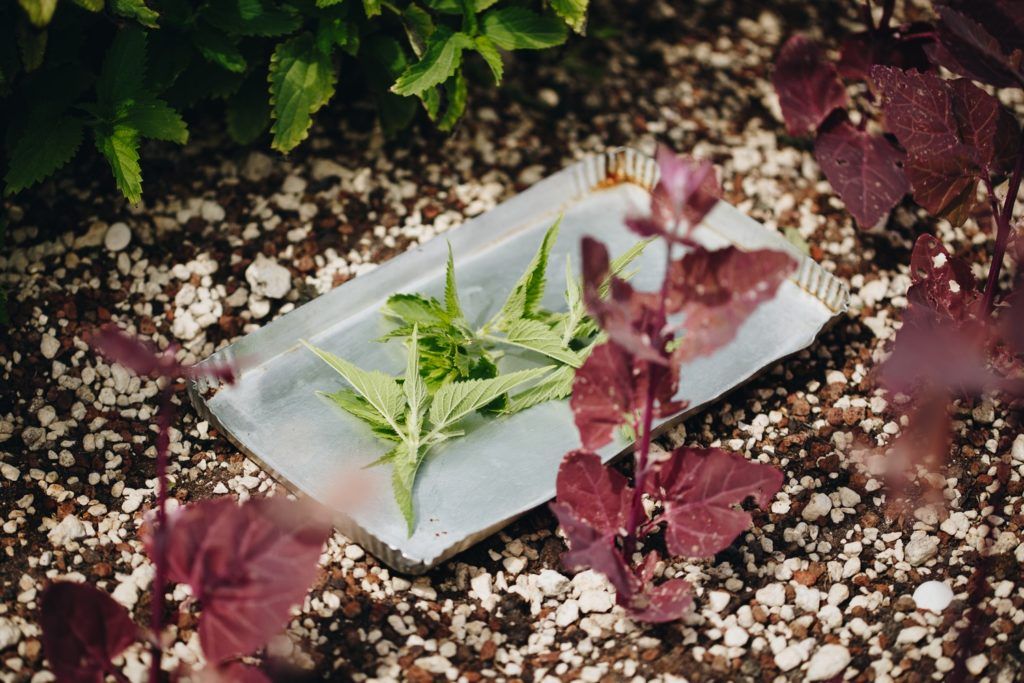
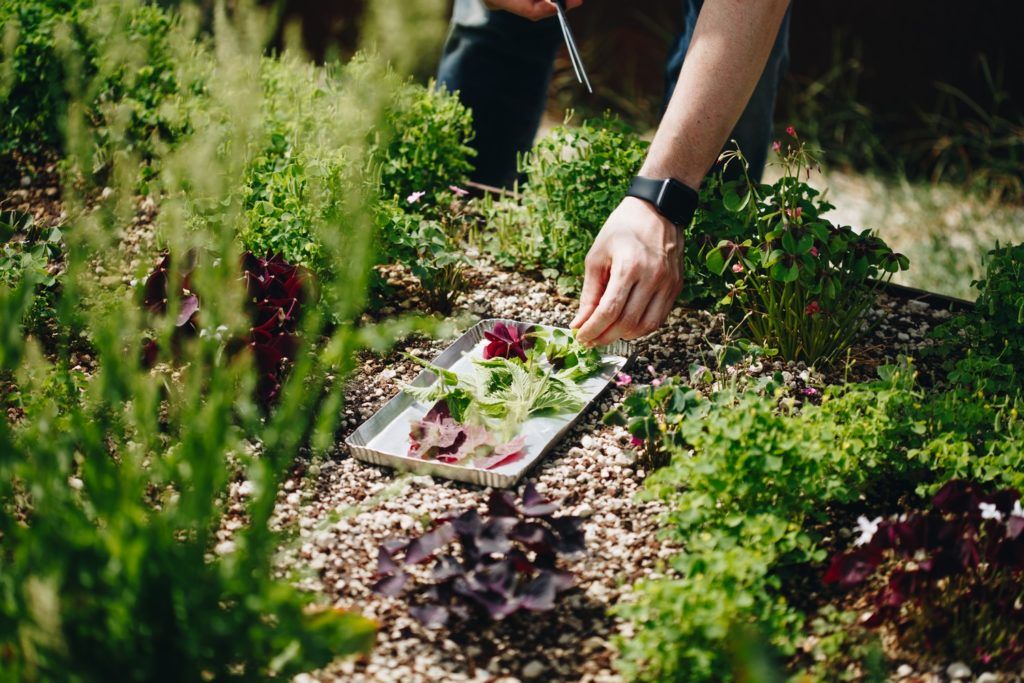
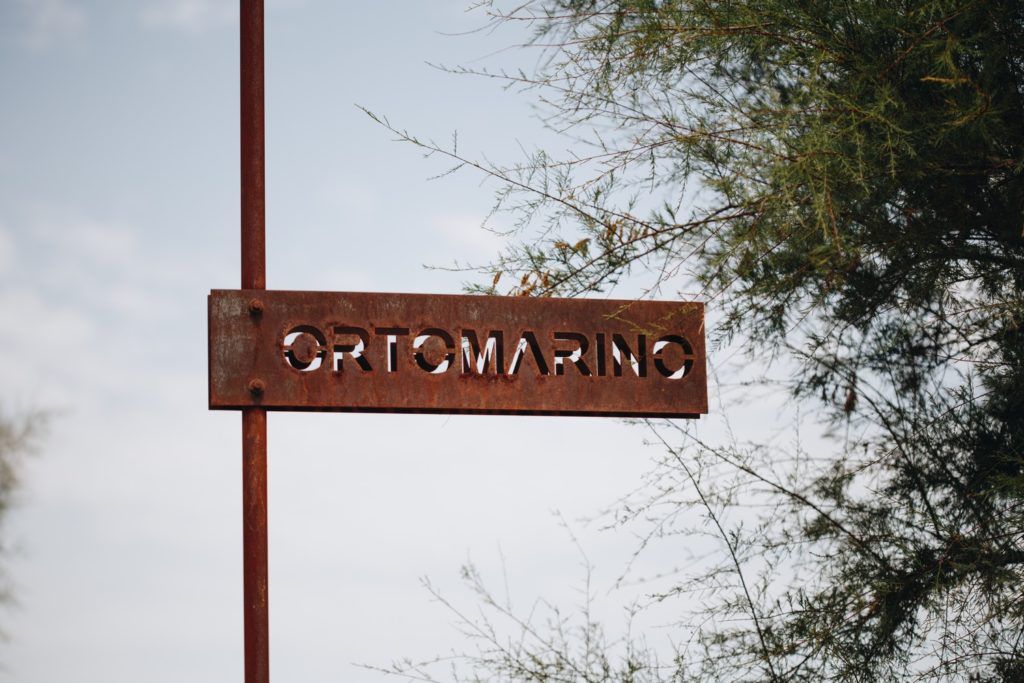
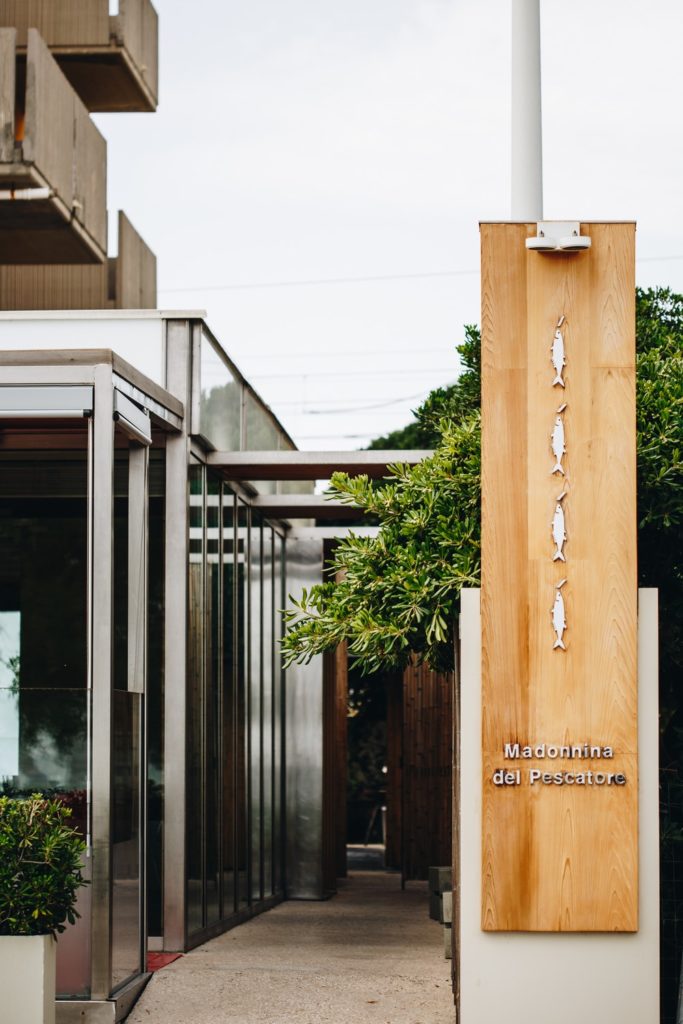
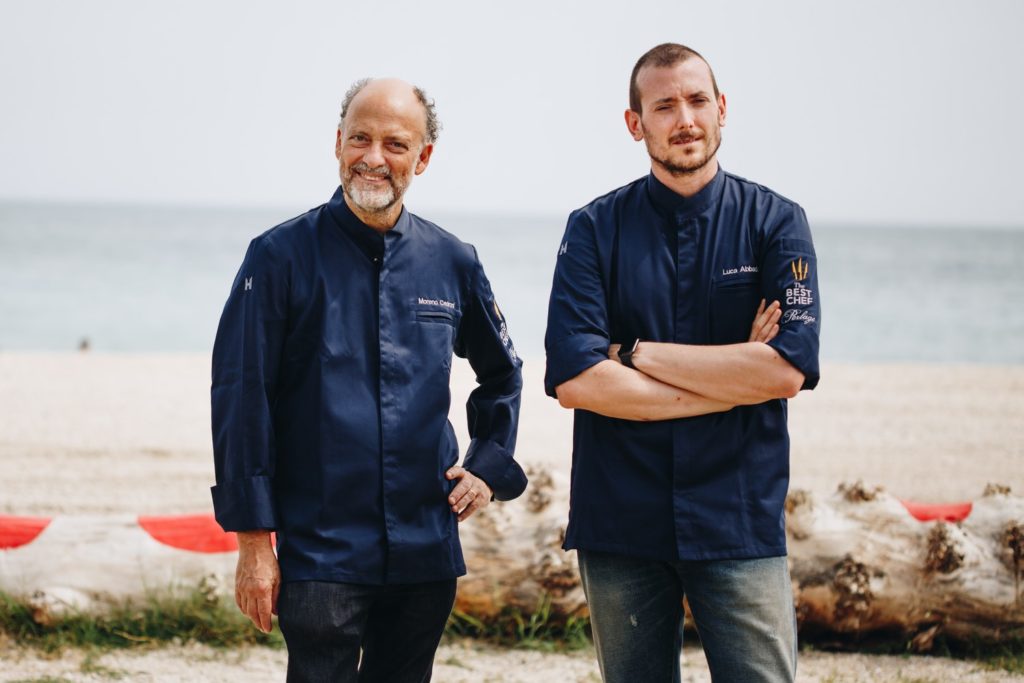
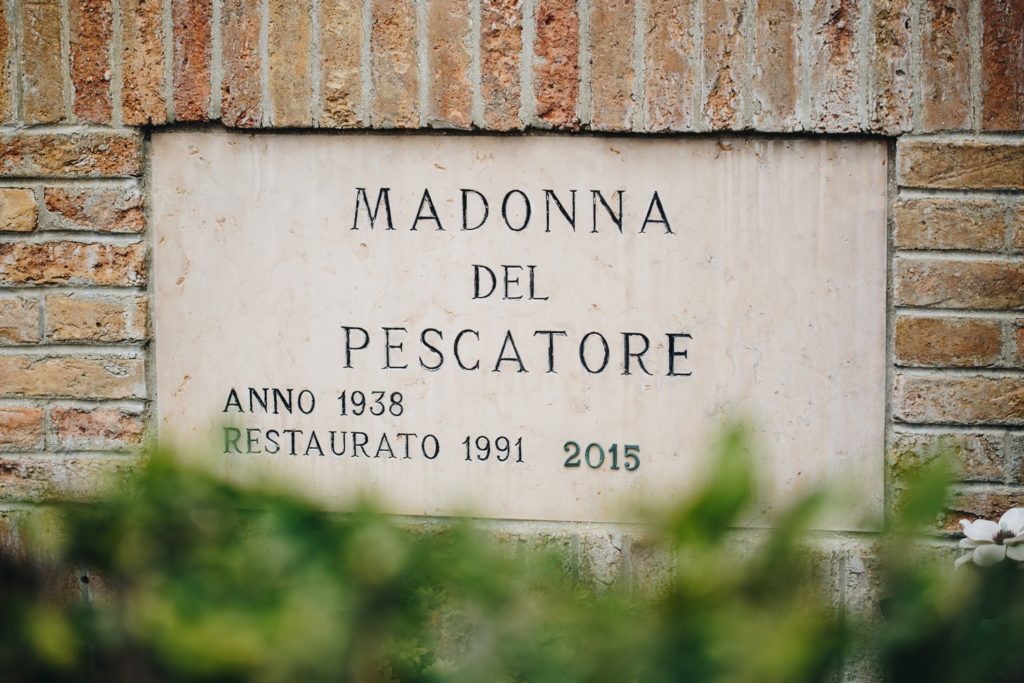
The Best Chef: Your inspirations, your new ideas, all the creativity that you develop, where do they come from for all these years?
Moreno Cedroni: The creativity of those past years is something I have been sharing with Luca for 13 years now. It is practically a team effort where we share the experiences we have gained abroad; we share new ingredients; we share research, and new menus and dishes appear. Of course, the work we do is for both Madonnina and Clandestino and for creating even a simple sandwich for Aniko. It’s here that the creativity begins for our entire group. Generally, we work on the new menu at Clandestino during February and March. We choose a theme and expand on it. In recent years, the Tunnel, our research and development laboratory, have given us new energy to approach products differently from that of the kitchen.
The Best Chef: We can see that behind every dish there is a huge effort, and they are the result of long research and continuous testing, but how did you get the inspiration to start a new one? What gives you the spark?
Luca Abbadir: In some cases, new dishes are created for the sake of a bit of fun. As in the case of the Sponge, which was the result of a game between me and Alessandro Negrini, the chef of Aimo e Nadia restaurant in Milan, who posted a photo of a real sponge one evening with the description: vanilla sponge cake and mint. I responded. I took a picture of the sponge while cleaning the kitchen and wrote: Check this out Alessandro, we also made a sponge from sponge cake, mint and vanilla. So, we finished the chat and went to bed. I woke up the following day and saw plenty of messages on Facebook, hundreds of Likes. I didn’t understand what it was all about. And it was all because Spinelli, food critic, had taken this photo and posted it on his profile with the description: Moreno Cedroni invented the edible dishwashing sponge. So, I went to Moreno, scared because it was 2012 when I’d only been here for 3-4 years, and I said: Moreno, I’ve made a bit of a mess. I published this photo, and it has become a big deal. And Moreno said: Well, in that case, we have to do it now.
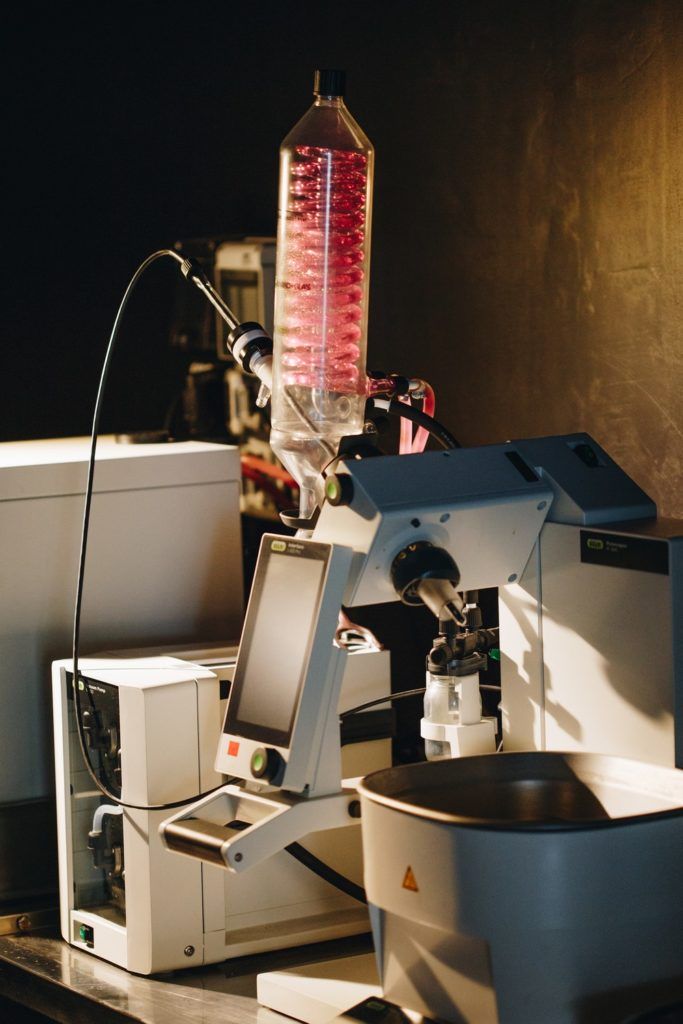
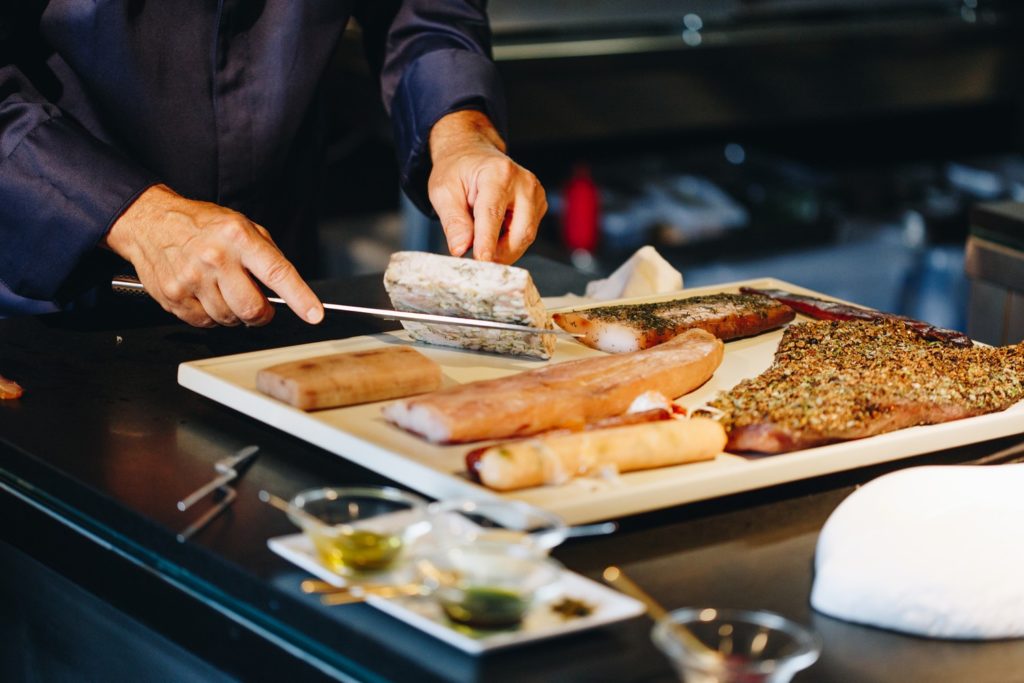
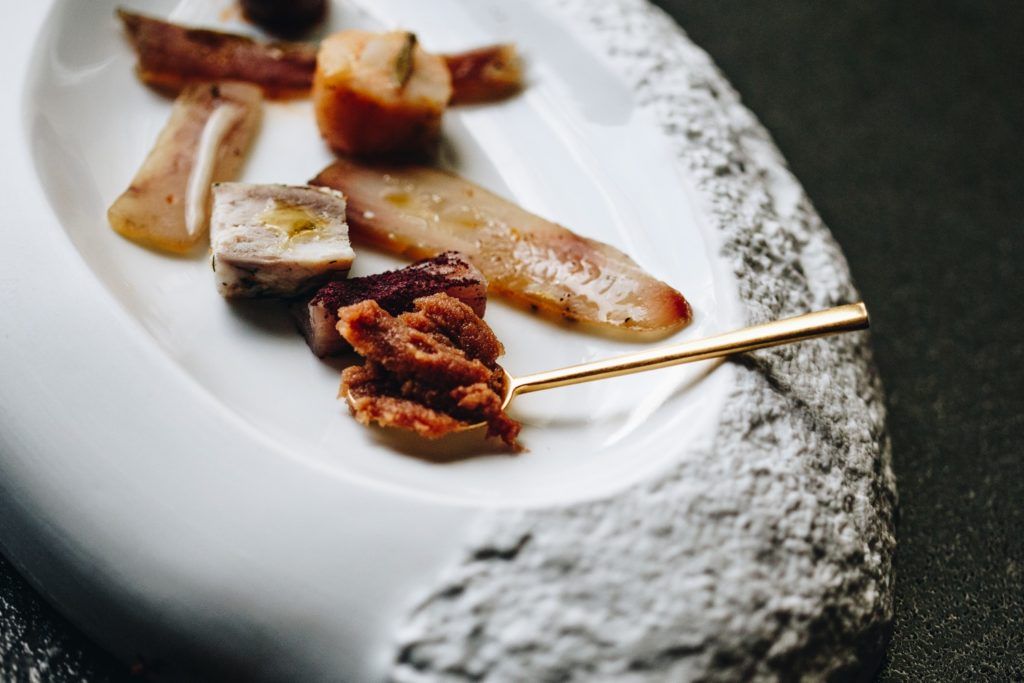
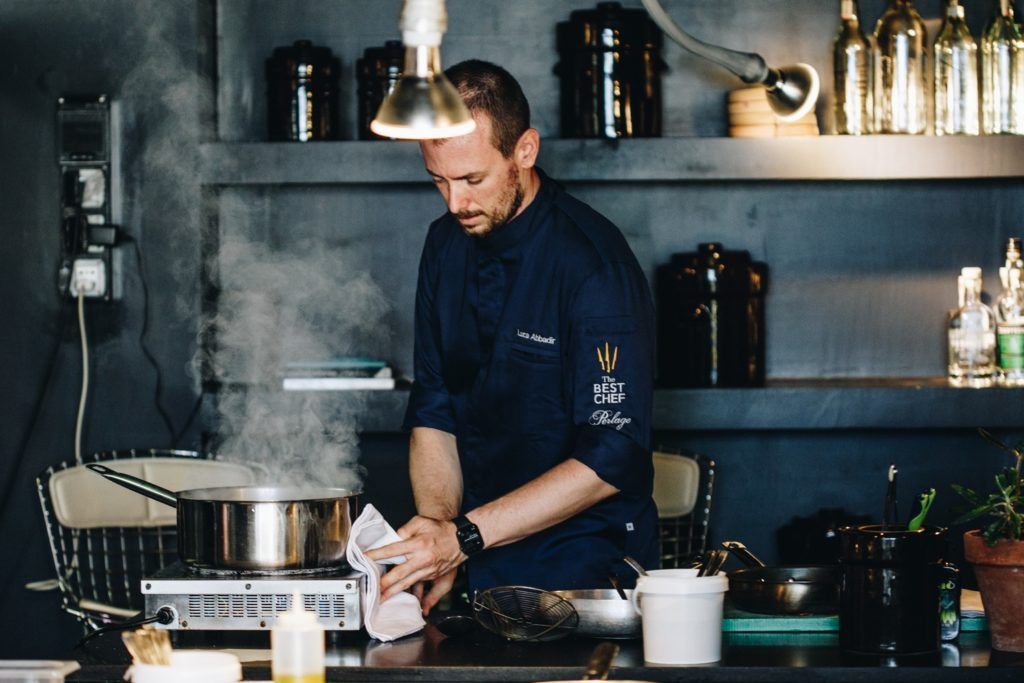
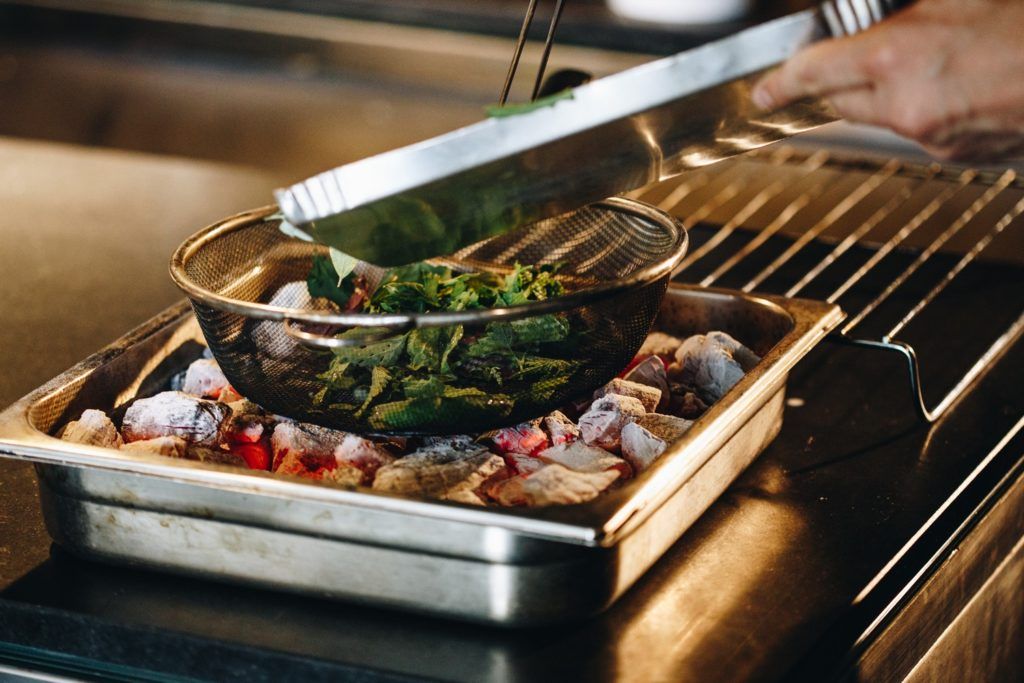
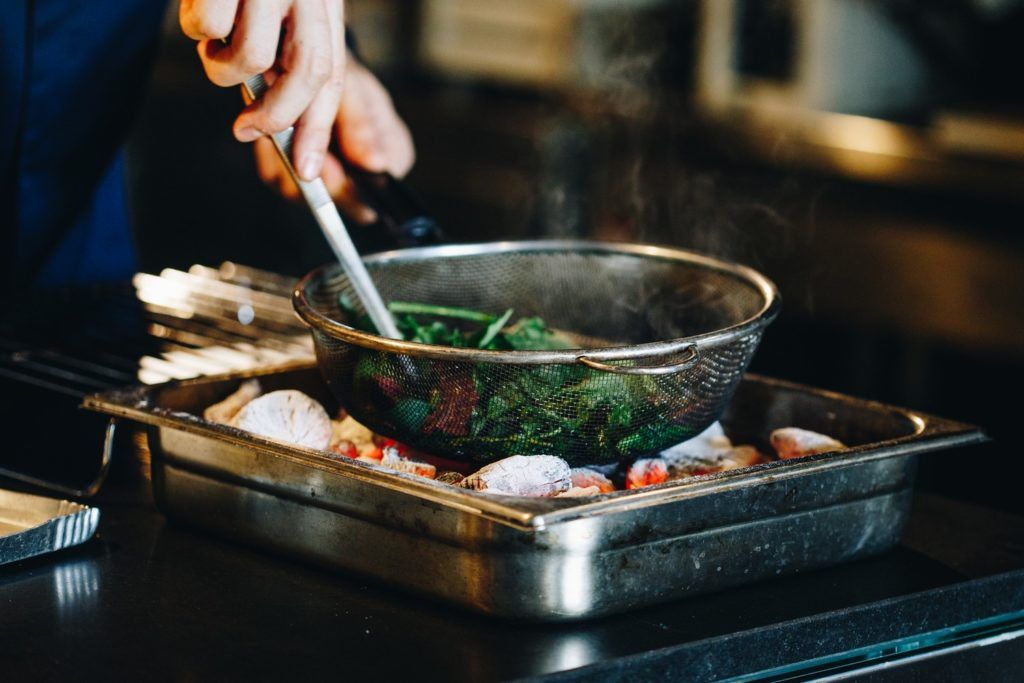
Moreno Cedroni: I said: Blimey! Great! It is going to make a pretty cool story. And that’s precisely what happened; a beautiful plate was created, and then as with every dish, when a new one comes along, the old one is tossed aside, which is what happened to this dish for about 7-8 years. It appeared again this year on the “Childhood Memories” menu, and we are now ready to make the appropriate changes to develop it further.
Luca Abbadir: If you think it was trendy in 2012, it’s even more so in 2021 as a dessert.
Moreno Cedroni: Guests need to do something, be active, and play with the dish before them. We see that both the less gourmet and the more gourmet guests succumb when up against this dessert. They are all happy, with this dessert, they feel at home; they are freed from many preconceptions and get a 360-degree experience in that very moment.
The Best Chef: Your approach to science, to new techniques and to new equipment from the lab in the kitchen, what impact do they have on you? On the technical and on the personal level? And also, in the vision of your kitchen routine?
Moreno Cedroni: We’re certainly not chemists, but we do like how things are progressing chemically. We were able to do a lot of testing at Tunnel with a variety of kitchen appliances. Luca can confirm that we have tested everything in the freeze-dryer, the rotary evaporator and the ultrasonic equipment. Naturally, some ingredients came out better, some worse. Some did not work out at all. Some did not pan out at all. Hence the name Tunnel. If we obtain a good product, we see the light, if not – we don’t see the light. We tried everything. It was a great joy when, for example, a lyophilised oyster became a huge success or when a lyophilised sea urchin turned out to be something unique. All the discoveries that got us excited; being the first to see them and what was happening.
Luca Abbadir: It’s like a new stimulus – a piece of new equipment. One may not be accustomed to using this type of equipment, as one may know how to use an oven or fire but may not know how to use a lyophiliser or dehumidifier. So, you have new stimuli to study, analyse, explore and discover new tastes, textures.
Moreno Cedroni: I must say that the desire to act is also associated with the fact that you are not getting a positive result. A negative result stimulates you. It prompts you even more, to try again.
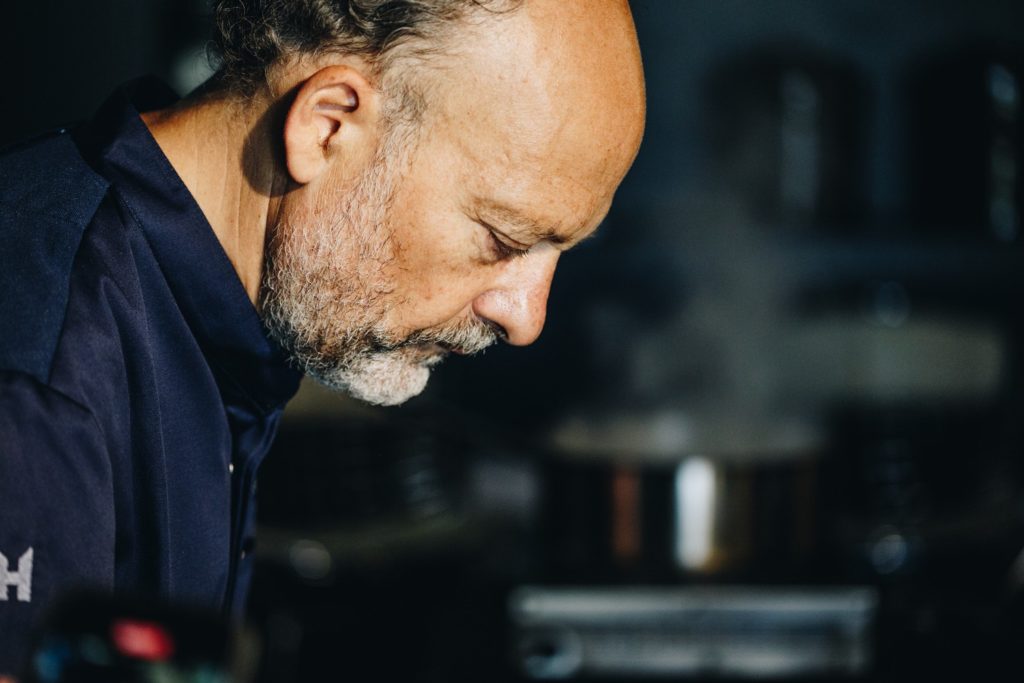
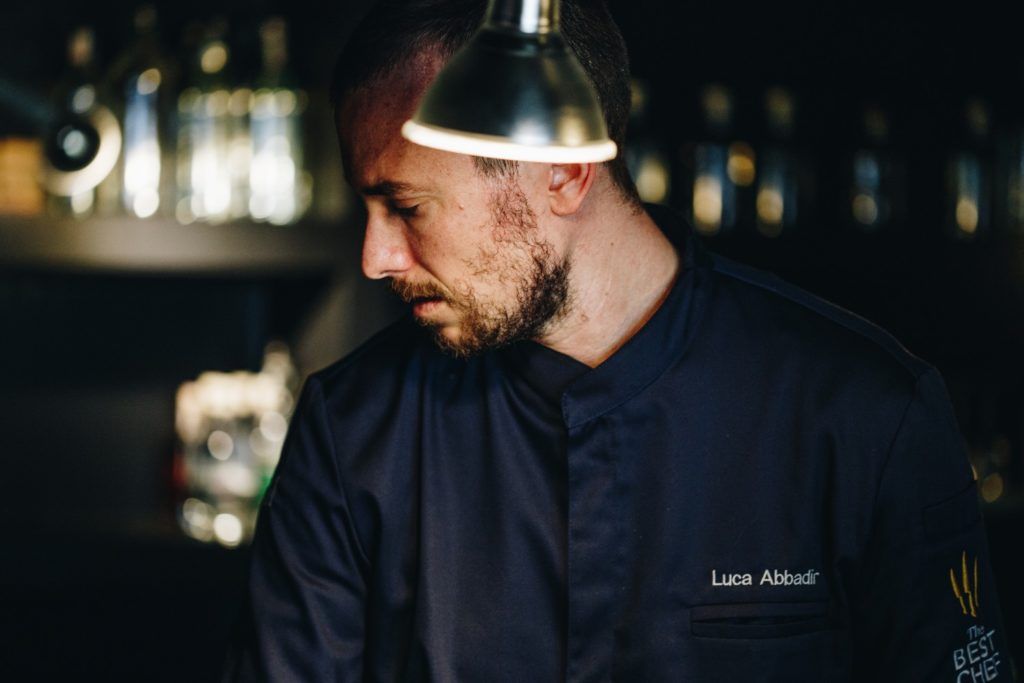
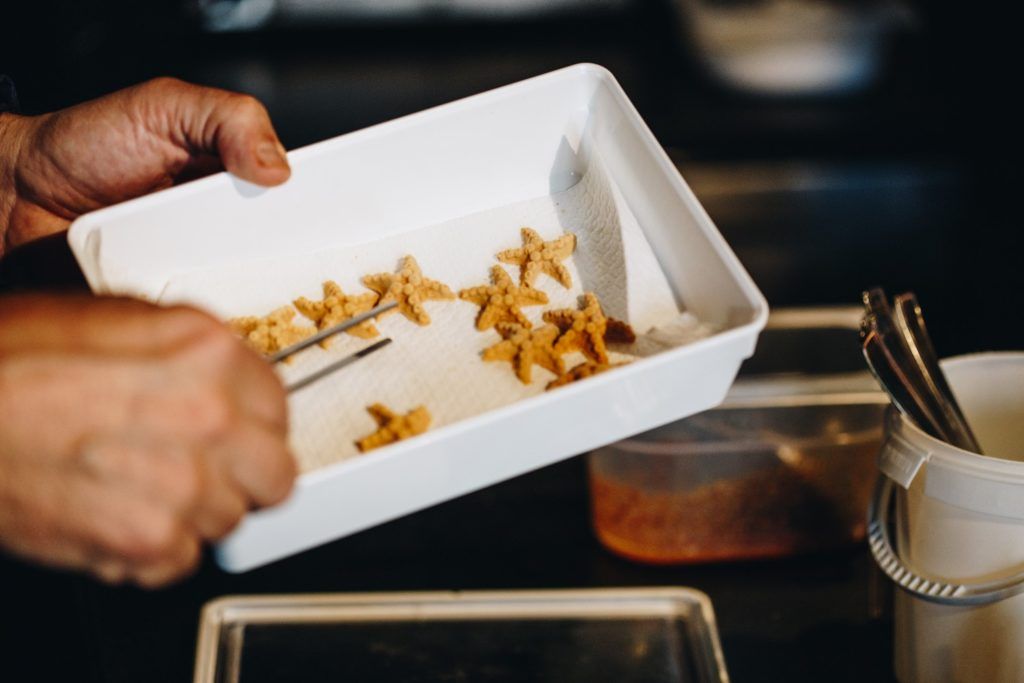
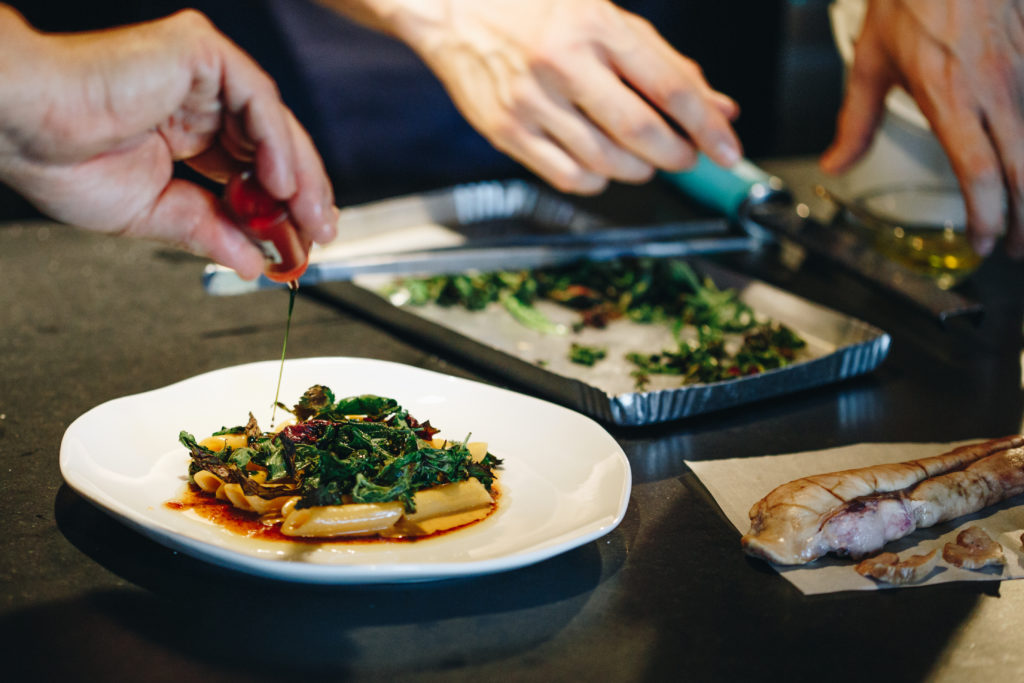
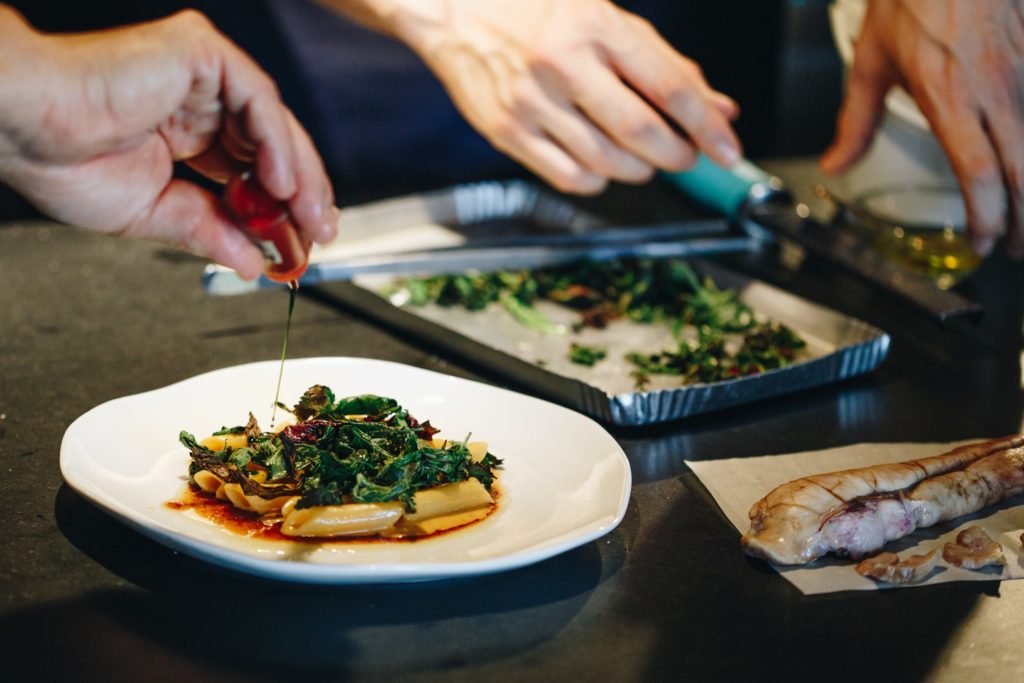
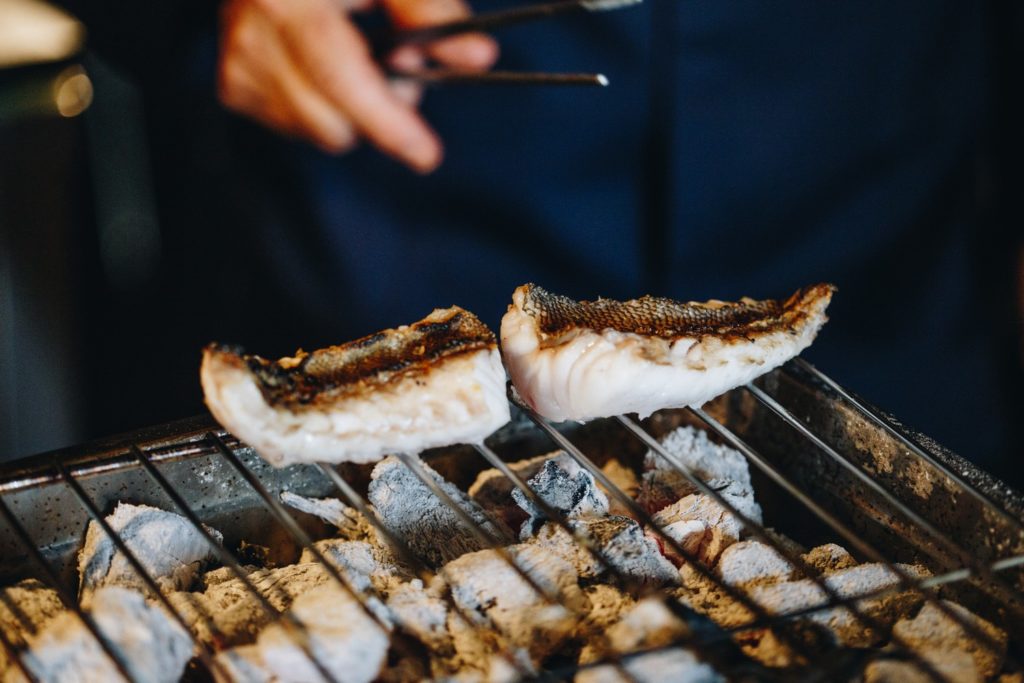
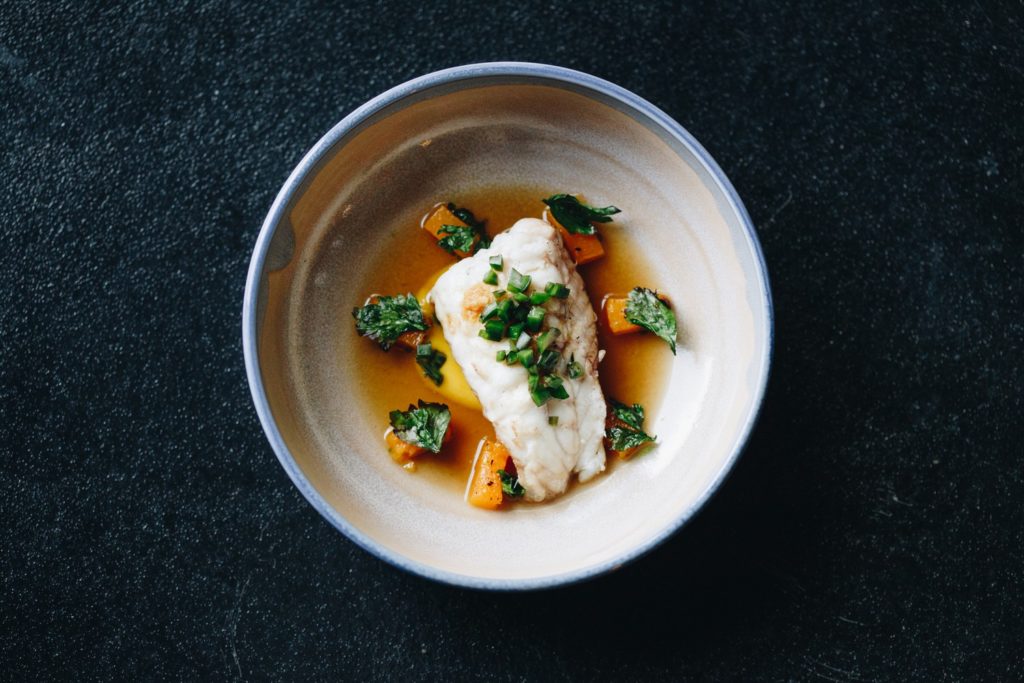
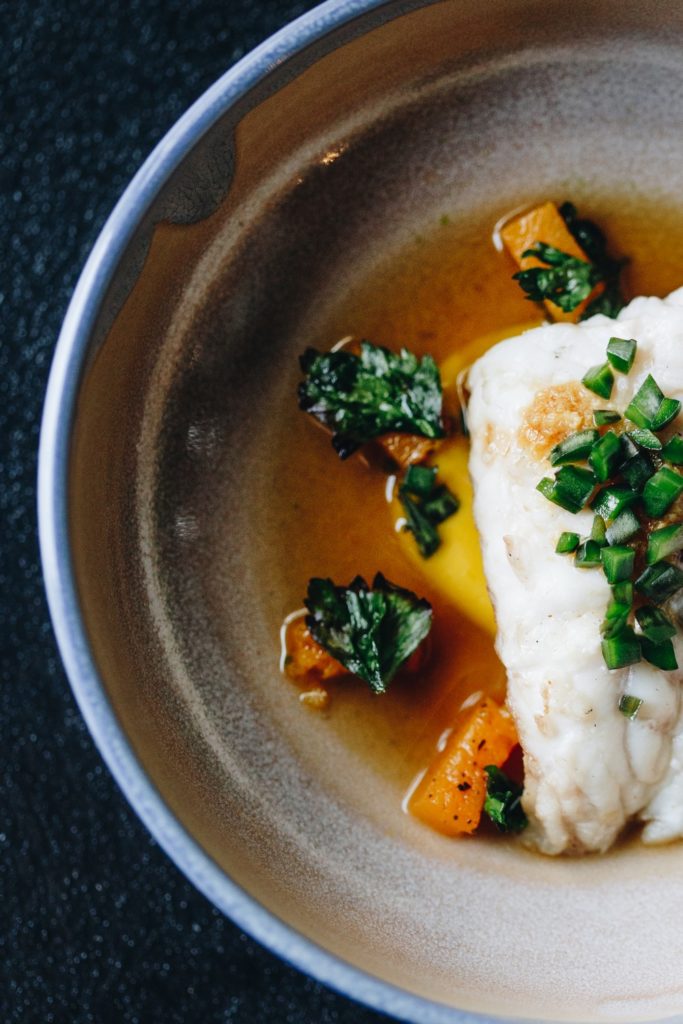
The Best Chef: And what are your studies and experiments currently focused on?
Moreno Cedroni: This year is certainly a year of maturing fish. Something that has already appeared in Spain, Australia, Japan and also in Italy. As of this year, we’ve begun approaching this scientifically, analysing everything that goes on inside the fish, together with the chemist present with us in the lab and through dishes we offer to our guests. We are satisfied both with the maturing of the fish – we give our guests various types of fish to sample at different maturing stages. We are happy with the maturing fish we prepare on the grill. So, it is an area that we are happy with so far. Now we want to give it a scientific overtone so that no one can accuse us: But this fish, 3 weeks, 4 weeks, what are you doing there? We shall provide scientific values to all our colleagues and gift them to everyone. Each one will be able to assess them and continue as they please.
The Best Chef: With the pandemic, we can confirm that there has been a huge change all over the world, for our way to live, our habits, how did you react to it? How did it change your way of work?
Luca Abbadir: I think the positive thing about the lockdown period, which was a stay at home period for many people, is that we used it to think about new dishes and how to enrich and encourage the guests. We kept moving forward even when things were at a standstill.
Moreno Cedroni: The period of the second lockdown was very productive. The first one was a complete surprise for us. We also tried a delivery service during the first lockdown with dishes from Aniko, but after just a few weeks, we started to suffer a bit. We were in a pretty tricky situation with delivery!
The Best Chef: Moreno, we can say that you played a crucial part in the Italian cuisine, and in the history of it, how do you see your future now? Do you think that due to global standardization, Italian traditions, value and its roots are, in a certain way, in danger?
Moreno Cedroni: I think Italian cuisine has never been in such good shape as it is now. I must say it is down to a large group of chefs, aged 40 and 60, who have created and are creating Italian cuisine history and an entire group of young chefs who are embarking or have recently embarked on their culinary journey. Italian cuisine is compelling because the traditions are deeply rooted in most of us chefs. I would dare say that it also looks excellent at the global and European levels. We all remember the French domination, then the Spanish moment, then northern Europe, Peru, but I must say that Italy has gained a lot of ‘points’ in recent times and appears to be on a par with other countries. In my opinion, this is the best moment. Let us hope it won’t be destroyed and that everybody will follow the wave, and all continue their work in the best possible way, with their heart, soul, research and creativity. I think we will achieve great things.
Luca Abbadir: We have a strong group of chefs; between north and south; we are all connected. Yes, they are all connected.
Moreno Cedroni: The group may have been somewhat constricted thirty years ago, but now it has expanded. We confront one another, have excellent friendly relationships and keep in touch. That’s great – A lovely group. Friendship and respect.
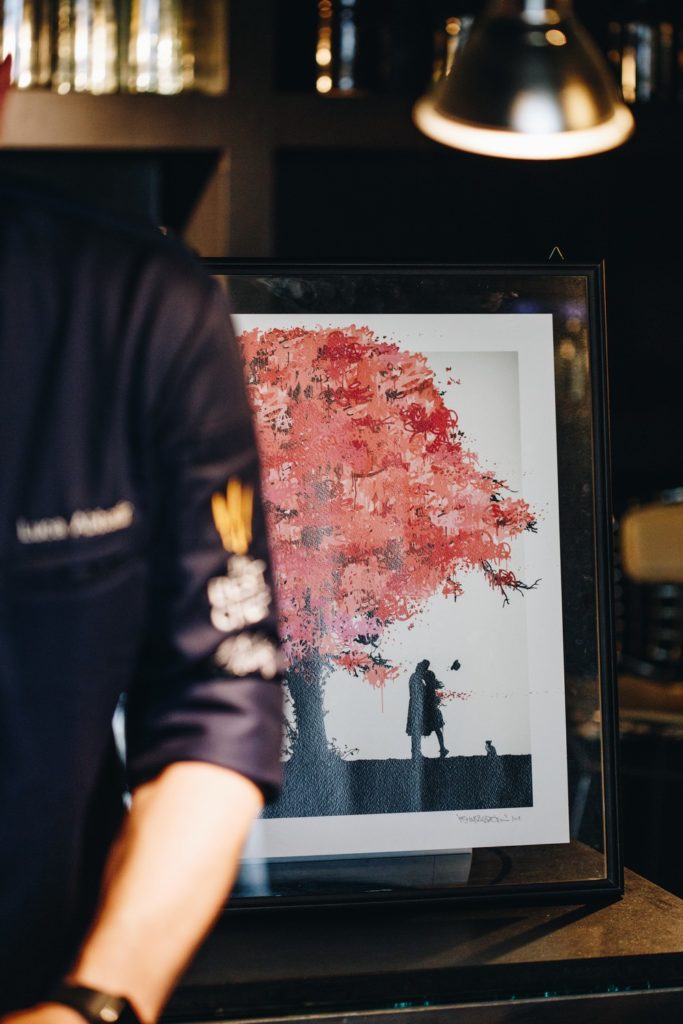
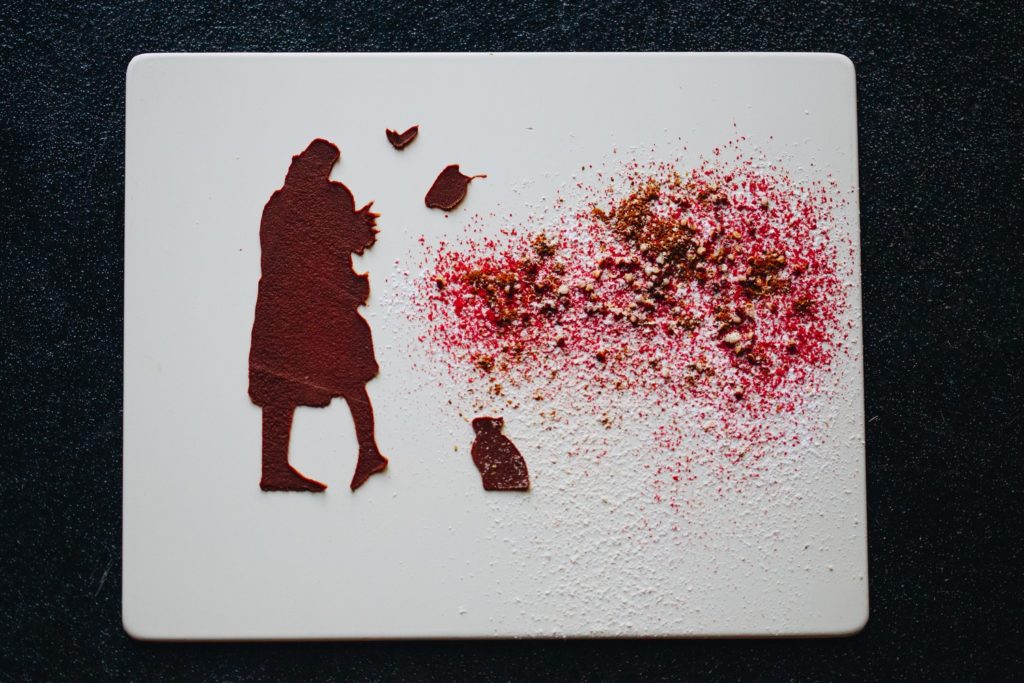
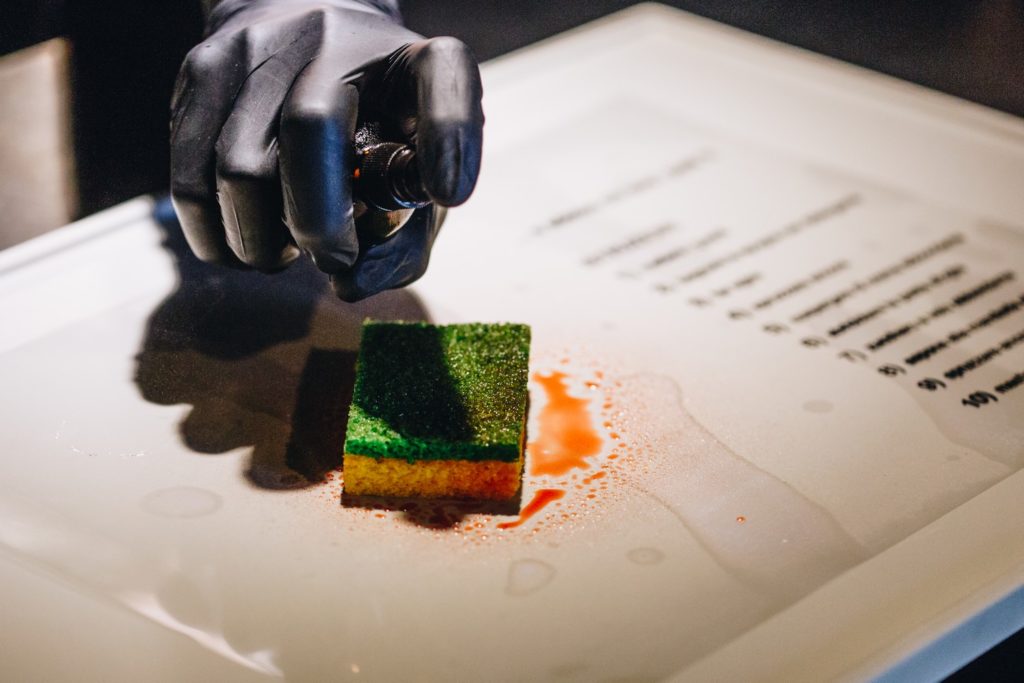
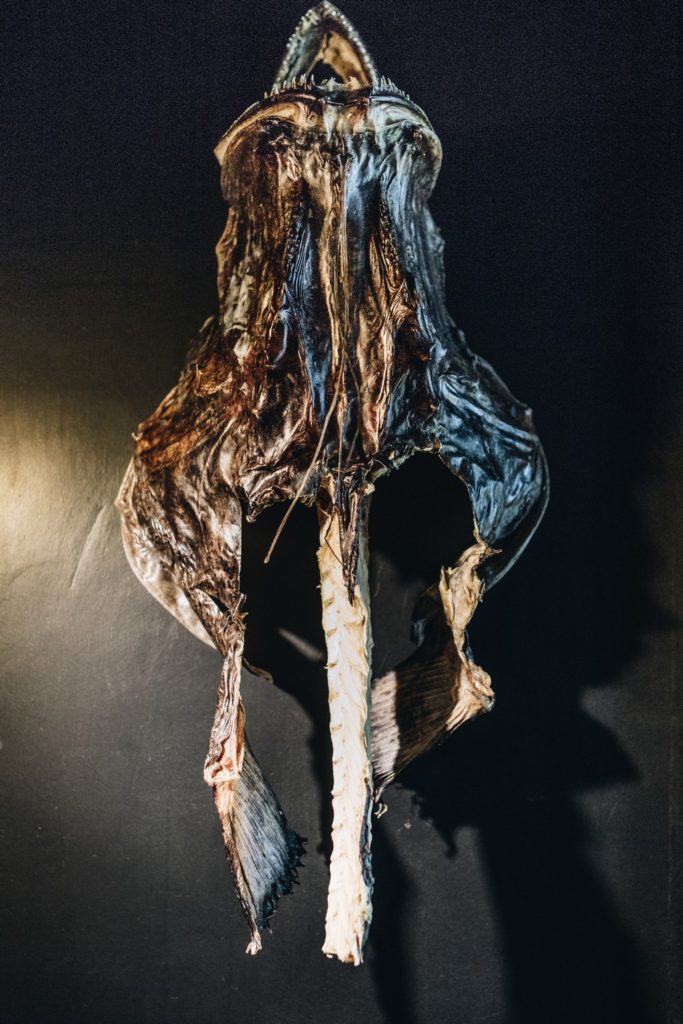
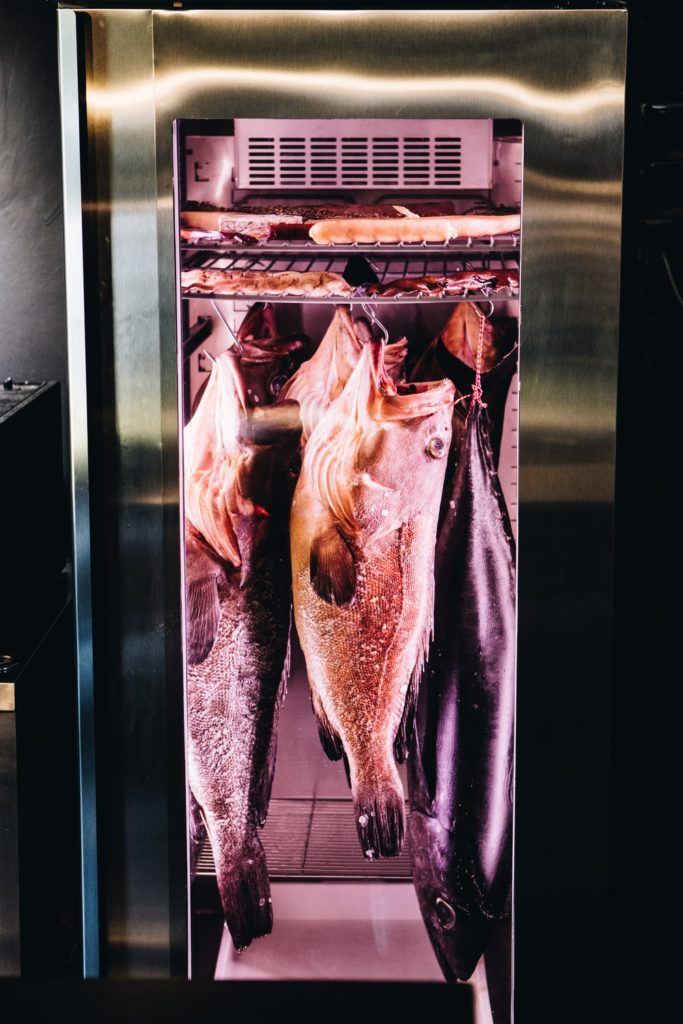
The Best Chef: Senigallia has become a centre for the Italian cuisine, and we can say that you brought it to the international spotlight, how do you feel about it? Do you feel proud of it?
Moreno Cedroni: It pleases me to see Senigallia, which has become a gastronomic hub in the Marche and Italy. When we began thirty-seven years ago, Senigallia was small. There were few restaurants. It was one of many coastal towns with excellent cuisine associated with the sea, just like many such towns. To see now that all the gastronomic activities, ranging from the bistro chalet at the seaside, to the wine bar, through the star restaurant, have all improved, by following the stimulus that we gave, that Mauro Uliassi provided. It has certainly delivered an even greater value to the city. Everyone tried to improve, not just to imitate Mauro or us. Everyone in their respective field has made progress. Now, the city provides emotions at every level of shopping, makes the customer feel good; does original things, eats good things, drinks good stuff and enjoys top-quality ice cream from Paola Brunelli. We have great bread from Pandefra’. Thus, I have to say that it could not be better. Additionally, there is the Enoteca series at a high level, the Galli Enoteca. There are also places serving drinks, mixology or places with aperitifs like Saltatappo, a very well-stocked cellar. I would say that we are in an important position that almost reminds me of San Sebastian. It reminds me of what San Sebastian is in the Basque Country, an important centre for Spanish gastronomy.
The Best Chef: Any advice for the next generation now approaching this world?
Moreno Cedroni: For the next generation I would like to say to be aware that this work is as beautiful as demanding, and it is important to know if you really have this passion and the right stimuli, and also the talent to try to achieve a high level.
Luca Abbadir: There is plenty of work, it’s like a competitive sport.
Moreno Cedroni: as in sport, where there are different rosters. You have Serie A, Serie B, Serie C. It is inevitable. As in sport, so in art. So that everyone recognises at what level they are, at what level they can act best, where they can best create and transfer what they know how to create.
Luca: Every service is a final for us. Every service is a cup final for us.
Moreno Cedroni: So, it is stressful. Physically, yes, related to fatigue, but also psychologically, because you have to be ready at all times. Jitters, you know.
The Best Chef: We can only imagine the pressure of being included in the best guide and ranking, how do you deal with spotlight pressure?
Luca Abbadir: I think it is good that everyone is watching us. But we are focused on our work. When we enter the Madonnina. Enough! We enter the Madonnina. We have our job, our goal, to please the customer, make them leave happy, and give compliments. The beautiful thing is that for the past two years, at this restaurant, Moreno, then myself, has approached the tables; me with the desserts; Moreno serves almost every plate. So, every dish is served by Moreno.
Moreno Cedroni: Let’s say we manage to approach each table and tell them about a dish we’ve made, and we’re able to enrich the guests through the experience. It’s not just the story of the dish itself, but also how it was conceived. When we come here, we think about how to do it right. We do not do it for this or that ranking. We do it for ourselves, for our guests, for our associates. Of course, if you work well and get some reward, it’s natural – we are here.
